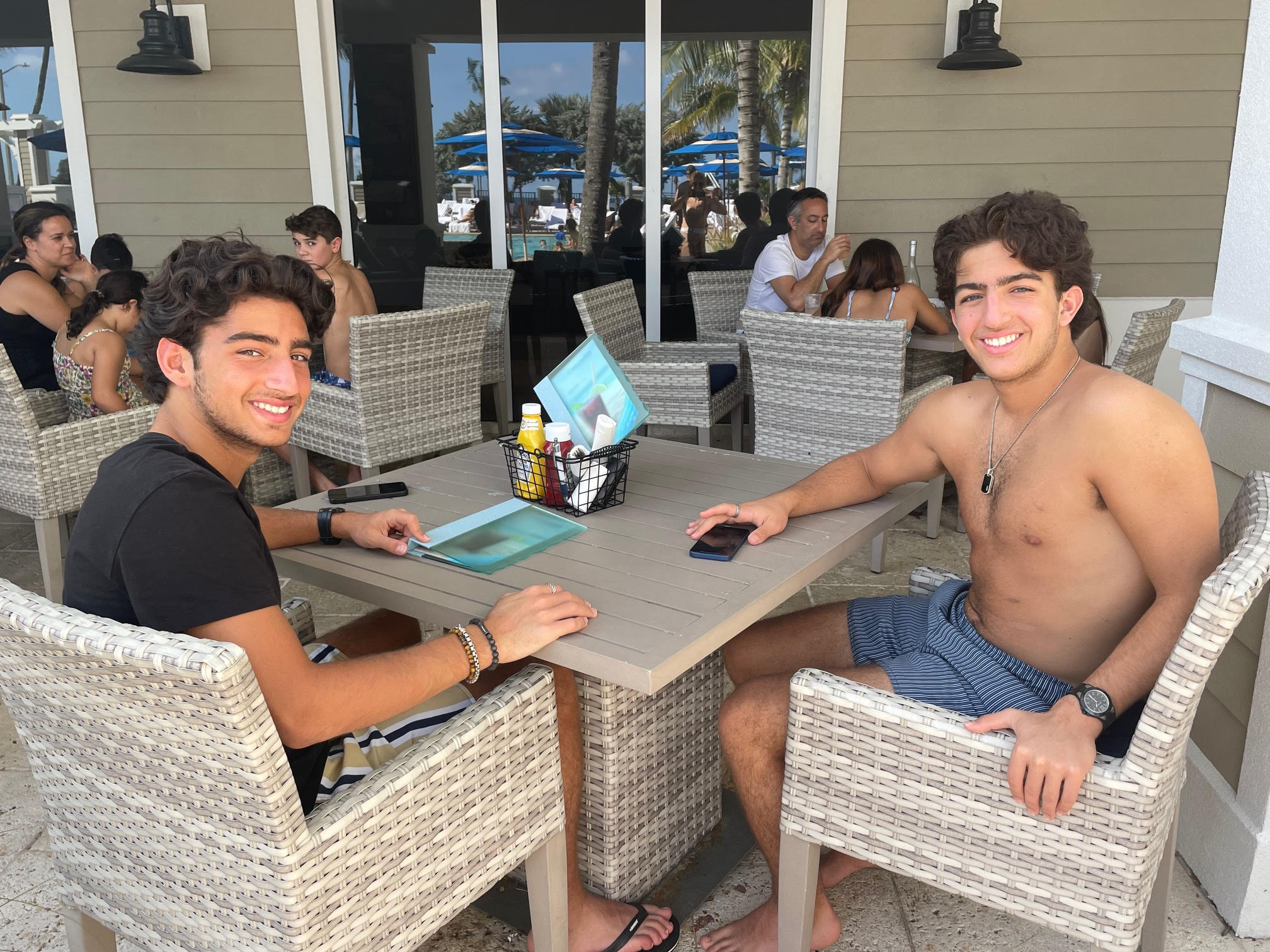Brothers Matthew and Jason Nejat found a way to connect with other kids who were deaf and hard of hearing across the country during the pandemic – by offering tutoring services. Their students found more – they found new friends.
By Rin-rin Yu
Back when the pandemic and virtual school was in full swing, brothers Matthew and Jason Nejat understood what other kids who were hard of hearing were going through.
“One family came to our house and the mom explained how their kids were falling behind and feeling isolated,” their mother, Natalie Nejat, said. “Mine came up with idea: we can tutor these kids.”
Matthew, then a senior, and Jason, a junior, were both diagnosed with deafness at three months and wearing hearing aids. They excelled in school and were not embarrassed to advocate for themselves, Natalie says. When the pandemic happened, however, she said that hybrid learning became impossible. “[The teacher is] in a mask, not in front of the camera, and even kids with hearing are complaining,” she recalls them saying. They petitioned for the school to be back in-person full time, and succeeded.
Before the pandemic, Jason had connected with two boys, also deaf, through their speech pathologist. It was one of them whose family came by to talk to them about falling behind in school and inspired the idea of tutoring other kids who were deaf across the country.
“They started tutoring kids in Texas, Kansas, New York City, and they loved it,” she says. The boys, who live in Long Island, New York, were spending 45-60 minutes online with students from grades 3-9 working on different subjects.
Natalie remembers one of the kids who didn’t really want a tutor, but wasn’t fitting in at school, asking. if he could just play Fortnight with Jason and “not tell my parents,” she says. “They really connected.” She says Jason talked to him about not being embarrassed and told him, “if you’re confident and secure, they won’t look at you any different.”
Even after school went back to in-person, the boys wanted to continue working with the kids. “They enjoy the connection and helping them and seeing them do better,” she says. “I’m happy they can give back and help. The younger kids who need someone to look up to.”
Establecimiento de contactos
Rin-rin Yu
Cuando la pandemia y las clases virtuales estaban en pleno apogeo, los hermanos Matthew y Jason Nejat comprendieron las dificultades a las que se enfrentaban otros niños con hipoacusia.
«Una familia vino a nuestra casa y la madre nos contó que sus hijos se estaban quedando atrás y se sentían aislados», explica su madre, Natalie Nejat. «A nosotros se nos ocurrió una idea: podemos darles clases».
Matthew y Jason, ambos alumnos de secundaria, recibieron un diagnóstico de sordera a los tres meses y utilizaban audífonos. Eran alumnos que siempre habían destacado y sabían defender sus propios intereses, asegura Natalie. Sin embargo, con la pandemia, el aprendizaje híbrido se había vuelto imposible. «El maestro llevaba mascarilla, no se situaba frente a la cámara, e incluso los niños con una audición normal se quejaban», recuerda que le decían. Solicitaron que la escuela volviera a ser presencial a tiempo completo y lo lograron.
Antes de la pandemia, Jason había establecido contacto con dos niños, también con sordera, a través del logopeda que les atendía. Uno de ellos pertenecía a la familia que acudió a su casa para hablarles del retraso escolar y que inspiró la idea de dar clases a otros niños con sordera en todo el país.
«Empezaron a dar clases a niños de Texas, Kansas y Nueva York, y les encantó», asegura. Los niños, que viven en Long Island, Nueva York, pasaban de 45 a 60 minutos en línea con alumnos de los cursos 3-9 trabajando en diferentes temas.
Natalie recuerda que uno de los niños no necesitaba ayuda escolar pero no encajaba en la escuela y le preguntó a Jason si podían jugar a Fortnite «sin que se enteren mis padres», comenta. «Conectaron de verdad». Cuenta que Jason le habló acerca de no sentir vergüenza: «si tienes confianza y seguridad, no te mirarán de una manera diferente».
Incluso después de que la escuela volviera a ser presencial, quisieron seguir trabajando con los niños. «Disfrutaban del contacto establecido, ayudándoles y viendo su progreso», añade. «Me siento feliz de que puedan prestar su ayuda a niños más pequeños que necesitan tener un modelo a seguir».

